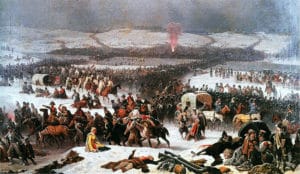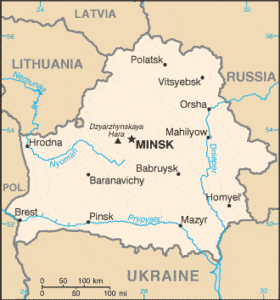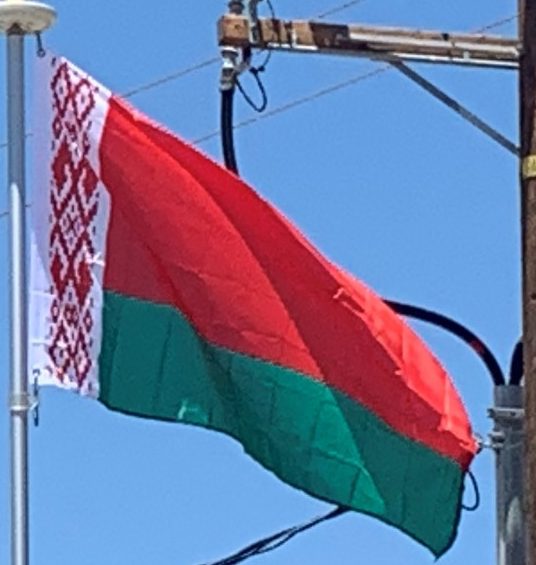An alternate explanation for the name comments on the white clothing worn by the local Slavic population. A third theory suggests that the old Rus’ lands that were not conquered by the Tatars (i.e., Polotsk, Vitebsk and Mogilev) had been referred to as “White Rus'”.
The name Rus is often conflated with its Latin forms Russia and Ruthenia, thus Belarus is often referred to as White Russia or White Ruthenia. The name first appeared in German and Latin medieval literature; the chronicles of Jan of Czarnków mention the imprisonment of Lithuanian grand duke Jogaila and his mother at “Albae Russiae, Poloczk dicto” in 1381. In some languages, including German, Afrikaans and Dutch, the country is generally called “White Russia” to this day (Weißrussland and Wit-Rusland respectively).
The Latin term “Alba Russia” was used again by Pope Pius VI in 1783 to recognize the Society of Jesus there, exclaiming “Approbo Societatem Jesu in Alba Russia degentem, approbo, approbo.” The first known use of White Russia to refer to Belarus was in the late-16th century by Englishman Sir Jerome Horsey, who was known for his close contacts with the Russian Royal Court. During the 17th century, the Russian tsars used “White Rus” to describe the lands added from the Grand Duchy of Lithuania.

The term Belorussia first rose in the days of the Russian Empire, and the Russian Tsar was usually styled “the Tsar of All the Russias”, as Russia or the Russian Empire was formed by three parts of Russia—the Great, Little, and White. This asserted that the territories are all Russian and all the peoples are also Russian; in the case of the Belarusians, they were variants of the Russian people.
After the Bolshevik Revolution in 1917, the term “White Russia” caused some confusion, as it was also the name of the military force that opposed the red Bolsheviks. During the period of the Byelorussian SSR, the term Byelorussia was embraced as part of a national consciousness. In western Belarus under Polish control, Byelorussia became commonly used in the regions of Białystok and Grodno during the interwar period.
The term Byelorussia was only used officially until 1991, when the Supreme Soviet of the Byelorussian SSR decreed by law that the new independent republic should be called Republic of Belarus, and that its abridged form should be “Belarus”. The law decreed that all the forms of the new term should be transliterated into other languages from their Belarusian language forms. The use of Byelorussian SSR and any abbreviations thereof were allowed from 1991 to 1993. Conservative forces in the newly independent Belarus did not support the name change and opposed its inclusion in the 1991 draft of the Constitution of Belarus.

Accordingly, the name Byelorussia was replaced by Belarus in English. Likewise, the adjective Belorussian or Byelorussian was replaced by Belarusian in English. Belarusian is closer to the original Belarusian term of bielaruski. Belarusian intelligentsia in the Stalin era attempted to change the name from Byelorussia to a form of Krivia because of the supposed connection with Russia. Some nationalists object to the name for the same reason. Several local newspapers kept the old name of the country in Russian in their names, for example Komsomolskaya Pravda v Byelorussii, which is the localized publication of a popular Russian newspaper. Also, those who wish for Belarus to be reunited with Russia continue to use Belorussia. Officially, the full name of the country is “Republic of Belarus.”
History:
Early History:
From 5000 to 2000 BC, Bandkeramik cultures predominated. In addition, remains from the Dnieper-Donets culture were found in Belarus and parts of Ukraine. Cimmerians and other pastoralists roamed through the area by 1,000 BC, and by 500 AD, Slavs had taken up residence, which was circumscribed by the Scythians who roamed its outskirts. Invaders from Asia, among whom were the Huns and Avars, swept through c. 400–600 AD, but were unable to dislodge the Slavic presence.
